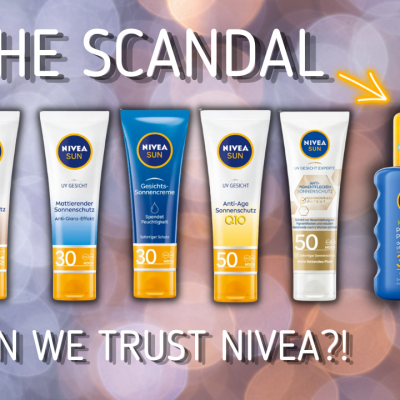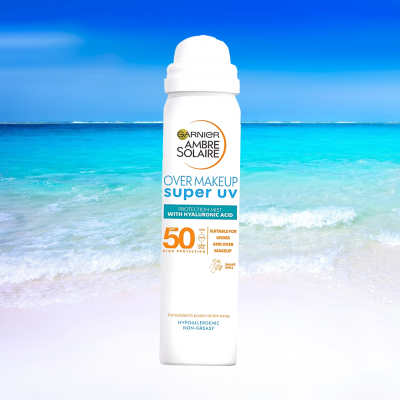Chemical VS Physical Sunscreen | Which is Better? Which One Should You Get?

To determine which type of sunscreen is better, physical or chemical, let’s first see what exactly the difference between them is.
Physical sunscreens contain physical (mineral) UV filters like zinc oxide and titanium dioxide. They work by sitting on top of your skin and reflecting the UV rays (although research shows that they can also absorb the UV rays as well).
Chemical sunscreens, on the other hand, contain organic UV filters that first get absorbed by the skin and then absorb UV rays.
Sensor characteristics between chemical and physical sunscreens are quite different.
Physical sunscreens are harder to apply, and they leave a white cast on the skin. This makes them very difficult to work with on daily basis.
Chemical sunscreens on the other hand are easier to apply, and they don’t leave a white cast which makes them convenient for everyday use on the face.
Which type is more efficient in protecting you from the sun?
Physical sunscreens are naturally broad-spectrum, but they need to be applied more often than chemical sunscreens. Also, they can be less effective if not applied and re-applied correctly since UV light can get between the sunscreen molecules and get into the skin.
FUN FACT: Cerave did a survey in which they found that 55% of people who skipped sunscreen daily said it was because of how it feels during and after application, and 38% said that white cast was an issue.
Sensor characteristics make people SKIP or UNDER-APPLY sunscreen. Skipping or under-applying your sunscreen can seriously reduce its effectiveness. So this is not something that should be ignored when choosing sunscreen.
On the other hand, most chemical sunscreens on the market also provide broad-spectrum protection, and newer UV filters offer high and photostable UVA protection as well. UVA protection is really important because there are more UVA rays than there are UVB rays in the sunlight, and UVA rays are the ones that destroy collagen and cause aging.
If you take into consideration that application is easier with chemical sunscreens (which indicates that people are less likely to avoid applying it because of that), in that case, I would say that chemical sunscreens win the effectiveness round.
Which type is safer though?
Chemical sunscreens get absorbed by the skin and a small amount of some UV filters can reach the bloodstream, so people are concerned about the long-term exposure to those chemical UV filters. Now just based on this, I cannot tell you that chemical sunscreens are unsafe and that we should all go back to physical, because the potential negative effects of UV filters being present in the bloodstream are yet to be researched, and just finding a small amount of something in the bloodstream doesn’t mean that there is enough of it to have any effect. More research on this topic is needed so that we could know for sure.
But what we do know for sure is that the health risks of sun exposure far outweigh the potential risk of absorbing sunscreen chemical UV filters whose potential negative effects are yet to be researched.
On the other hand, physical UV filters don’t get absorbed by the skin; they just sit on top of your skin, so it is believed that they are generally a safer option. But physical sunscreens are more often found on the market in their nano forms. This is done in an attempt to reduce the white cast that they leave on the skin and improve their sensor characteristics.
There is also a concern regarding the possible absorption of nanoparticles, and if they also can reach the bloodstream just like chemical UV filters. A study in which the penetration of zinc oxide nanoparticles was tested on human volunteers shows that less than 0.01% of zinc was entering the bloodstream. That’s a very small amount, but it still enters the bloodstream, just like chemical UV filters.
So both physical sunscreens in their nano forms and chemical filters can reach the bloodstream, but the amounts are small, and just finding a small amount of something in the bloodstream doesn’t mean that there is enough of it to have any effect. So I don’t think this is a reason to stop wearing sunscreen, because as I said already, the health risks of sun exposure far outweigh the potential risk of absorbing sunscreen UV filters whose potential negative effects are yet to be researched.
The last thing I need to address in the safety part is the potential of both physical and chemical sunscreens to photo-generate free radicals when they absorb ultraviolet wavelengths from sunlight. If you don’t know, free radicals are known to be associated with UV-induced skin damage and oxidative stress, from which sunscreens are expected to offer significant protection. Yes I know it’s a contradiction and yes, both types of sunscreen can do this, I found some studies (Study 1, Study 2).
BUT these studies were conducted in vitro, in cell lines, not on humans. That’s not enough for humanity to ditch sunscreens. Because these were just in vitro studies, and on the other hand there are clinical studies performed on humans that showed that sunscreens do indeed protect the skin from UV radiation. So we know for sure that sunscreens can prevent photoaging, and their use is supported as prevention of skin cancer.
FINAL VERDICT
When we take everything into consideration here is my final verdict. If you want to be safe from UV filters entering your bloodstream, the safest option for you would be to get the old school physical sunscreen (not in its nano form though), just be mindful that it is going to be very hard to apply it and blend it properly every day in order to avoid looking very pale every day, to say the least, and in order to maintain the claimed protection. If you don’t mind this, go for it! I support you!
On the other hand, If you are all for protecting your skin from the sun properly on a daily basis with no white cast and super easy application, and you are ok with the fact that for now the health risks of sun exposure far outweigh the potential risk of absorbing sunscreen chemical UV filters (whose potential negative effects are yet to be researched) then go for the chemical sunscreens.
If you are waiting to hear my opinion, yes I will stick to my chemical sunscreens. Because I believe that amount that I apply on a daily basis isn’t concerning. I apply it only on my face and neck on daily basis during winter, fall, and a better part of the spring. So I apply it on my body only during summer, to the parts that are exposed to the sun (if I am wearing a T-Shirt or a skirt), and I apply it on my whole body only when I am at the beach. For me, unfortunately, that is only 10 days a year. Hopefully, that will change! LOL!
So because of that, I am not concerned for now, if anything changes, if new research comes out, I will update you if I change my mind.
And if you live somewhere by the beach and you wear sunscreen on your body all the time, then I totally understand why you would go for a physical sunscreen.
Either way, I respect your choice. For now, I am sticking with chemical sunscreens.
Let me know if this was helpful! Thanks for reading!

Pharmacist Specialized In Cosmetology



